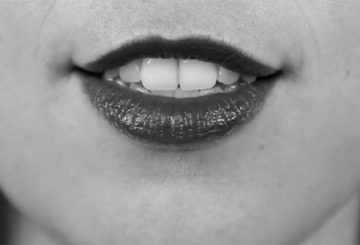The Australian’s Editorial: Cultural Cringe. June 9, 2006.
Bad art and bad teaching reflect a postmodern malaise.
WHAT do a perforated shipping container, a medical student who can’t tell the difference between a heart and a liver and a poster advertising the movie Gandhi have in common? No, they are not all exhibits in the current Sydney Biennale [Biennale of Sydney] – only the shipping container made it in this year. [Good opening – topical events, rhetorical question catches the readers attention!] Rather, they are all symptoms of a postmodern [too vague] rot at the core of Australian academic and cultural life [are these two things really separate?] that seeks to divorce art from beauty [this is a very big claim without an example], replace skills-based excellence with warmed-over sociology and inject a politicised, deterministic view of the world in which identity groups trump individuals into virtually every sphere of life [This is a major statement based on a series of presumptions your reader may not agree with. You need to back each of these claims up with supporting examples and evidence.] Thus [You cannot say ‘thus’ as you have offered no supporting evidence to then claim that one thing necessarily follows the other.] “conceptual artist” Milica Tomic is lauded [by whom? example?] for getting a pair of ‘roo shooters to pump a container full of lead. And hers was hardly the most ludicrous exhibition in the current Biennale [This statement is forceful and contentious, but you offer no other examples of what are more ‘ludicrous’ art works. You have also thus far failed to convince the reader why the form of the work – the container full of holes – relates to the idea behind the work in question. This needs expanding. ] In medical schools, anatomy classes have been slashed to make room for courses in cultural sensitivity [Again, no specific example to back up this sweeping statement. Is anatomy needed in all medical courses? What is wrong with cultural sensitivity? You are failing to convince the reader]. And across Australia, high school English classes are turned into political battlegrounds where books – when they are read at all – are only allowed to be filtered through the dusty and unoriginal prisms of race, sex and class. [Starting a sentence with a conjunction is a neat rhetorical technique to imply that the next statement follows from the last but your three examples are not related art, medicine, school curricula – why are these three things brought together in your argument?] In Western Australia, Year 12 English students have even been asked in exams to compare movie posters advertising Gandhi and Spider-Man 2, though Premier Alan Carpenter has, encouragingly, stepped in to fix the worst outrages in that state’s gradeless, outcomes-based curriculum [Why is one thing related to the other? Which school? Why are examples of popular culture unsuitable for the classroom?] . This newspaper has for years taken a stand against such silliness, and not just for aesthetic reasons [Cite just one example to back up this claim. Also what do you mean by ‘aesthetic reasons’ and what are you referring to – school curricula? Art? medical schools?]. While the danger of doctors who are trained more as sociologists than medicos is readily apparent [is it?], an attitude of lowest-common-denominator relativism threatens society and the economy as art, critical thinking [what does this mean?], and knowledge for its own sake become ever more divorced from the lives of everyday Australians. This should not be the case. [You have failed to make the case it is so – generalities and examples without proof do a disservice to your argument]. Art should inspire and uplift [Is that it’s only role?] while great literature should highlight the universal themes and emotions of human existence – of which politics and class warfare is only a small part [This is a very muddled statement – you need to be clearer about what you mean by ‘universal themes’. You cannot claim that some ‘universal themes’ are less universal than others]. Great paintings such as the Mona Lisa have an immediacy that draws the eye while also letting the audience linger in another time and place [Good!] Meanwhile, literature is routinely taught in both suburban public schools and elite private academies as “texts” to be read from a Marxist or feminist paradigm and treated as nothing more special than an episode of Neighbours. [This supports your thesis but again, it is very vague. Which schools? And – what do you mean by using quotes around “text” Is this some sort of point? You have also not effectively argued why Neighbours should not be held to the same critical standard as literature – is that not what you are arguing for elsewhere?] But as the Australian National University’s dean of humanities, Simon Haines, told the Lowy Institute this week, students don’t need “political roughage” to make literature palatable or relevant, and the deconstructive theory being taught in Australia’s high schools is at least 15 years out of date[Good example – but why is “deconstructive theory” out of date? Because it is old? Is the Mona Lisa irrelevant because it is old?]. Likewise, historian Henry Reynoldshas declared that in the teaching of history, currently fashionable postmodernism [too vague – also, style guide ‘Post Modernism’] is out of date, describing it as “lots of lights and colours (that) doesn’t get you anywhere” [Excellent – funny].
At the heart of the matter is an abdication of responsibility by the traditional guardians of the culture [Who or what are these guardians? What is a ‘traditional’ guardian’?]. Many universities, once incubators of great thought, have been infected by the mould-like spores of cultural studies [Presumably the ANU is not infected by these spores as you quote an ANU academic above, so you cannot make such a sweepings statement – either they have or they haven’t]. Education faculties, where our teachers are trained to teach our young, emphasise theory and sociology rather than ground graduates in the subjects they will be teaching [Is it some ‘theory’ not relevant to education, or the theory of education – you need to expand this point]. An elitist drive to overthrow traditional chalk-and-talk teaching in favour of politics and trendy theories such as critical literacy and outcomes-based education exacerbates the skills shortage [How? Example please] and short-changes those at the lower end of the socio-economic ladder [How?]. While smart kids and those from families with money and education will largely survive educational faddism thanks to tutors and intellectually rich home environments [Are you claiming that these tutors were educated outside of the ‘mould infected’ universities or teacher’s colleges? If so, where? This claim would seem to undermine your argument] children without those advantages or who suffer specific learning difficulties are left out in the cold. The abandonment of phonics for whole-language literacy instruction – which teaches children to recognise entire words as if they were Chinese ideograms rather than using the building blocks of written language to sound them out [Why is this a bad thing?] – has proven disastrous [evidence to back up your argument would make this statement more effective] for those with reading trouble. [Reading difficulties?]. And in the age of Google, which throws up millions of competing bits of information in a split-second, it is all the more necessary to teach kids critical thinking and facts of history separate the plausible from the just plain daft [Or a more effective search engine!]
Australia was spared much of the turbulence [historically vague] that hit the US and Europe in the late 1960s. The fallout, in the form of academic obsession with politics and
But there are signs that today’s youth is doing some rebelling of its own. After spending a dozen years in classrooms where they are told to feel ashamed of their countries [By whom, about what? This is a very strong statement with no example or evidence to support it], thousands of young Australians make the pilgrimage to Gallipoli each year to honour their country’s past and reflect on the values that make Australia special [this would seem to undermine your main argument – if they are taught otherwise, how is this happening?] Medical students rush to fill tutorials to learn the anatomy no longer covered in standard curriculums [example please!]. And, much to the chagrin of ageing baby boomers who lament the lack of activism among current university students, today’s young Australians have little enthusiasm for storming the ramparts and occupying the vice-chancellor’s office.[again, an apparent contradiction in your argumnent]. In the 2004 election, more “young fogies” aged 18-to-24 voted for John Howard than Mark Latham [Where did you get these stats? How does this statement follow on from the previous claim?] Last year, BBDO [which is what? An advertising agency, a market research company? If so, who commissioned the study? It may have some bearing on the reliability of the survey] released a survey which found that, unlike their parents’ generation, today’s young adults are showing a renewed interest in religion, marriage and putting children before careers. In short, they are doing what their elders taught them to: question authority. [Good strong ending which, unfortunately, also contradicts your main argument. Who is encouraging this questioning? The ‘guardians of culture’? If so, how? If not, does it mean the education system you are criticising allows criticism? This is a very confusing argument.]
[Overall your use of language is good – strong, clear statements written in an accessible style. However, most of your claims are not supported by examples or evidence. You make the assumption your reader already agrees with you and knows the background to what you are talking about. Since you intend to write for a general audience you need to offer more concrete information so your reader understands what you mean. You haven’t backed up your opening statements and the examples you cited don’t seem to be related. Is there something else you need to explain to the readers so they understand how these things are connected? Also, it would be helpful to bring the closing of your argument back to the starting point to make it more effective. A disappointing effort after the excellent work you did on the Australian Wheat Board Inquiry. 4/10. Please come and see us after class.]
[* With appropriate acknowledgement to Bank]

